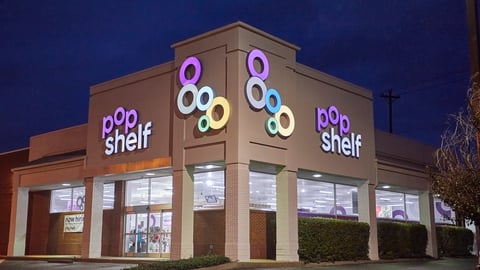Tech Bytes: Three Lessons from Oracle Industry Connect
Last week, Oracle hosted its second annual Oracle Industry Connect conference in Washington, D.C. This seat of world power was an appropriate setting for a two-day summit explaining how retailers can use technology to obtain better control of every aspect of their enterprises.
Here are three key lessons attendees gleaned from Oracle Industry Connect:
Customers are the Best Salespeople
Beauty products inspire passion and loyalty among customers like few other categories. The fast-growing specialty retailer Ulta Beauty takes full advantage of the strong emotional appeal its offerings create by turning customers into online salespeople.
In a Wednesday afternoon session, Ulta executives explained how the retailer posts shoppable “haul videos” customers create on its e-commerce site. The haul videos show customers displaying items they bought at Ulta, explaining why they like them so much, and giving tutorials on how to use and apply them properly.
Customers can rewind to a specific product and click on it to be brought to its listing on the Ulta site. This organic form of promotion provides an authenticity and sense of community no formal marketing program could ever deliver. Average order value of online purchases has risen since Ulta began running shoppable haul videos.
Creators of haul videos may receive incentives such as gift cards or free items, but are not monetarily compensated. Also Ulta may occasionally recommend an item for video review, but never provide a script or tell the video creators what to say.
The Cloud is About Process
The cloud is generally seen as an enabler of technology. Running applications on virtual servers makes them easier to integrate, deploy and manage with less overhead. While all this is true, the deeper truth is that the cloud is fundamentally an enabler of process.
“We don’t want you to be an IT shop, we want you to be a retailer,” Jill Puleri, senior VP and general manager of Oracle’s Retail Business Unit, told attendees. “The cloud is about time to value, not just a change from capital expense to operating expense.”
As Puleri explained, cloud technology allows retailers to easily fit solutions to their specific business purposes and spend more time on integrating and modifying internal business processes, which is often a bigger challenge than IT implementation.
Thus Oracle is using the cloud to extend its Commerce Anywhere connected omnichannel retail approach from financial through store execution solutions. By making implementing and integrating applications as easy as possible with a cloud platform, Oracle is enabling retailers to let business process drive technology decisions, rather than vice versa.
Omnichannel is about Process
Process was a recurring theme of Oracle Industry Connect. In a session, specialty athletic apparel retailer Lids described how it keeps store processes in mind when using the Micros Locate solution to provide an omnichannel shopping experience.
Lids has gone live with Locate at 800 stores, letting customers order at the POS to have out-of-stock goods shipped to their homes and also giving associates “endless aisle” capabilities with tablets. While sales have increased 1.5% at stores with omnichannel capability and e-commerce sales have risen more drastically, Lids evaluates how Locate works on a store-by-store basis and will remove it from stores where it does not fit well with operations.
In addition, Lids protects store inventory levels by limiting quantities of in-store merchandise used to fulfill online orders, and will not ship fragile items from stores.
“It’s a complex task and integrates lots of systems,” explained Kevin Thompson, director of application development, Lids. “Your stores will have fulfillment centers all of a sudden, when they have never done that before.”






